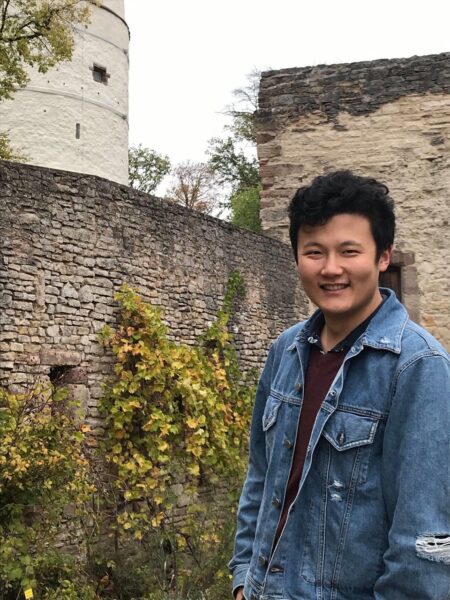 What is your position or role in the DESI project?
What is your position or role in the DESI project?
I am currently co-chair of the cosmological simulation working group. You will most likely find me on galaxy—halo connection, galaxy—quasar clustering, and weak lensing calls.
Where were you born?
A city of 8 million people in China that you probably have never heard of. 😉
Where do you live now?
I now live in a sunny neighborhood of San Francisco with my partner. Loving the fine weather and the diverse cultural experiences of the Bay Area.
What do you do as part of DESI?
I have been pushing on two key science aspects within DESI: understanding the intricacies of galaxy evolution, and constraining cosmology with small-scale information extracted through alternative statistics. We are finishing up a set of exciting papers that use early DESI data to reveal some interesting physics of galaxy evolution. On the cosmology side, we are developing a new simulation-based approach to build high-fidelity models of the Universe, which would allow us to tap into a ton of additional information that was previously inaccessible.
What is the most interesting or exciting thing about your job?
The process of seeing something unexpected in the data, and building hypotheses and intuition to explain the data is very rewarding. And when you finally stumble on the missing piece of the puzzle, it can be truly exhilarating. That said, I am still searching for that missing piece.
Any advice for an aspiring scientist?
Only do it because you love it. Don’t stress about it! And always prioritize your own health.
What do you do for fun?
I enjoy playing and watching all kinds of sports, but I most regularly play tennis. On the weekends, you will find me trying out a new restaurant, vibing to some funky disco at the local plant nursery, or just having a laugh playing games with my friends. And of course I am always down for a little getaway.
If you weren’t a scientist, what would be your dream job?
Probably a sailor, or a Youtube food vlogger.
What excites/interests you most about DESI?
Really looking forward to the surprises we will see in the data as we look towards new classes of galaxies, further back in time, and deeper into non-linear scales. Who knows what kind of new physics we are going to learn.